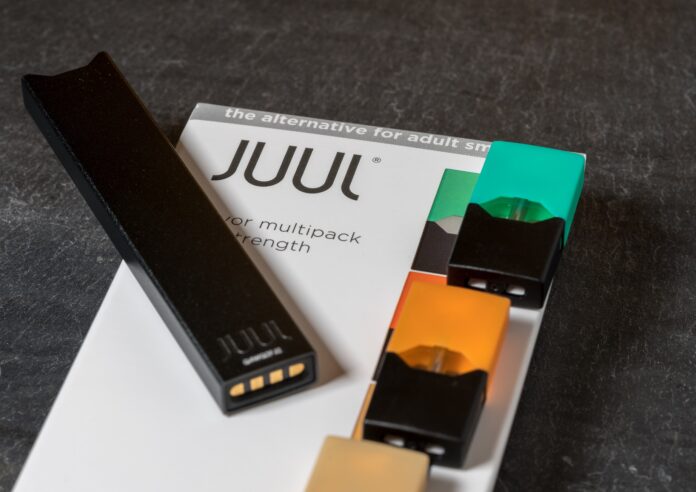Earlier today, the FDA announced that it is banning the sale of Juul e-cigarettes in the U.S. Currently, Juul intends to seek a stay on the decision and is exploring the option to appeal. The ban is part of the FDA’s review of the vaping industry. For years politicians and public health groups pressured the agency to regulate the use after vaping became common among high schoolers.
Juul sought approval from the FDA for its vaping device and tobacco- and menthol-flavored pods. Those flavors were subject to a 2020 agency ban on the mint and fruit-flavored vaping products in hopes of limiting sales amongst teens. This ban would deal Juul a hefty blow in sales. And international expansion efforts fell short due to regulations and lack of consumer interest; the U.S. remains its largest market.
Vaping’s Popularity Among High School Students
In 2019, data revealed that more than one in four high school students used an e-cigarette in the past 30 days. That was an increase from 11.7% in the last two years. Last year, the usage among high school students fell to 11.3% amid greater regulatory scrutiny and the pandemic.
Juul has been the industry leader in e-cigarettes since 2018. And as of 2020, the company held a 54.7% share of the $9.38 billion U.S. e-vapor market.
Why The FDA Banned Juul Vaping Products
The agency said Juul’s applications gave insufficient data about the potential risks of their products. “Without the data needed to determine relevant health risks, the FDA is issuing these marketing denial orders,” Michele Mital, acting director of the FDA’s Center for Tobacco Products, said in a statement.
“We respectfully disagree with the FDA’s findings and decision and continue to believe we have provided sufficient information and data based on high-quality research to address all issues raised by the agency,” Juul’s Murillo said in his statement.
In addition, the FDA made strides to cut down nicotine use in traditional tobacco products. On Tuesday, the agency said it plans to require tobacco companies to slash cigarette nicotine content to minimally addictive or nonaddictive levels.
The FDA gained the power to regulate new tobacco products in 2009. Before, thousands of e-cigarettes appeared in stores without approval from the agency. The agency reviews about 6.5 million applications from nearly 500 companies and denies about one million applications.







